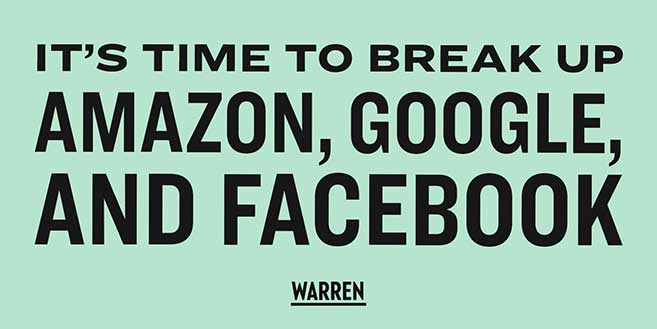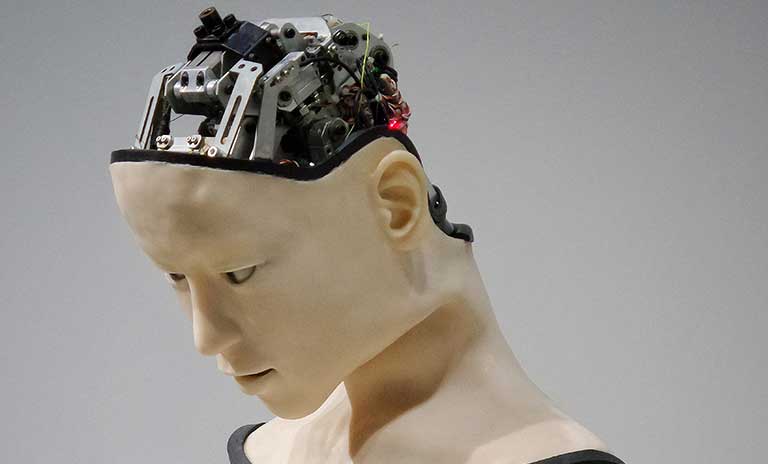
The 2020 US presidential race is already underway and in particular the Democratic nomination contest has been making the press over in the UK. One of the more eye catching policies from frontrunner Elizabeth Warren is her plan to break up Amazon, Google and Facebook. That article is well worth a read and it's hard not to see the sense in her ideas.

In her essay she namechecks the specific companies and mergers that she would look to unwind:
- Amazon: Whole Foods; Zappos
- Facebook: WhatsApp; Instagram
- Google: Waze; Nest; DoubleClick
Since she penned that post in March 2019 you can almost certainly add Google's latest acquisition of Fitbit.
If you consider the above list, particularly Facebook and Google, you can see that the main value of the acquisitions is the user base and associated data. The primary commercial usage of this expanded data set is to make the two platform's online advertising even more effective. But the deepening of the massive pools of data the companies hold has another usage in the form of training sets for the machine learning algorithms that are more glamorously referred to as Artificial Intelligence (AI). The sheer scale and detail level of the data that the current tech giants hold gives them a huge advantage when it comes to developing effective AI.
A lot has been made of the ethics of AI and how it will make swathes of people redundant as the tide rises and software steadily becomes more competent at performing repetitive tasks. But a lesser considered outcome of AI is that it will be predisposed to creating more tech monopolies. As mentioned, to create effective AI you need large amounts of detailed, relevant training data. The more data you have the better. As data is typically proprietary then some companies have an almost unassailable lead here already. In many use cases AI is winner takes all. Consider the AI use case of identifying tumours in medical scans. Would anybody want to use anything other than the best AI functionality for this, particularly if there was a standout leader in the field? The same goes for other common AI tasks. Would you be comfortable in getting into a self-driving car that crashes markedly more often than that driven by the leading AI solution? If there's a standout leader in an AI application, then they will capture the market and make it very difficult for new entrants to establish themselves. To guard against this political thought leaders like Warren need to broaden their horizons and make compulsory sharing of anonymised data by tech companies another key policy in their manifestos.

